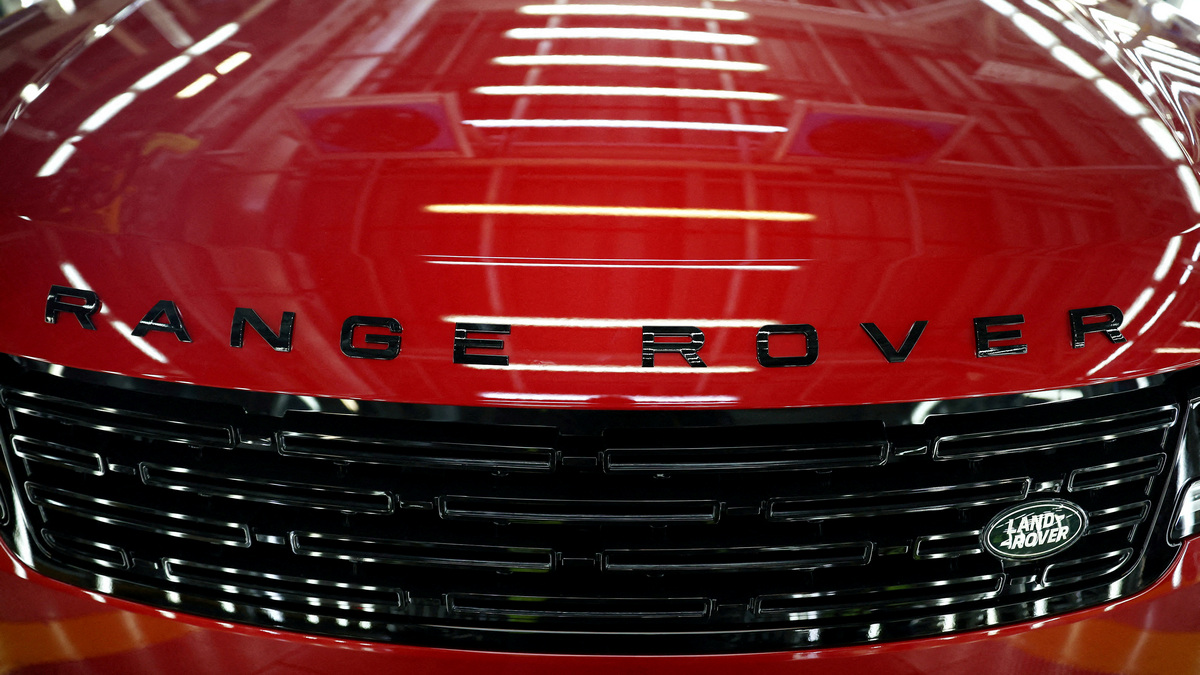US President Donald Trump’s new tariffs have left automakers reeling.
Trump on Wednesday declared that the US would levy a 25 per cent tariff on imported cars and critical auto parts.
The tariff is set to take effect on April 3.
Though Trump has said the tariffs would be a “net neutral or maybe good for Tesla," Elon Musk has claimed his EV firm will ‘not go unscathed.’
But which carmakers will be worst hit by Trump’s tariffs?
Let’s take a closer look:
What do we know?
As per Hindustan Times, the US imports around seven million cars every year.
That’s around half the vehicles sold in the country.
The US imported $474 billion worth of automotive products in 2024, including passenger cars worth $220 billion.
Mexico, Japan, South Korea, Canada and Germany, all close US allies, were the biggest suppliers.
According to Axios, most imported vehicles come from the US’ neighbours – Canada and Mexico.
Axios quoted data from Wards Automotive and Barclays research as showing that EV makers Rivian and Tesla manufacture 100 per cent of their cars sold in the US within the country.
Though these two companies will be least affected, they won’t escape completely.
This is because they will likely need to import important car parts from Mexico and Canada .
“Important to note that Tesla is NOT unscathed here. The tariff impact on Tesla is still significant,” Musk wrote on X Wednesday. “To be clear, this will affect the price of parts in Tesla cars that come from other countries. The cost impact is not trivial,” he wrote in a later post.
CBS quoted Art Wheaton, a transportation industry expert and director of labor studies at Cornell’s School of Industrial and Labor Relations, as saying that Tesla imports batteries from China “so the tariffs will have an impact.”
UBS analysts also noted that Tesla rival Rivian could similarly be among the least effected.
“We believe TSLA and RIVN could fare better as 100 per cent of their production is in the US (though not all components),” UBS analysts said in a research note.
Patrick Masterson, lead researcher for the Cars.com’s 2024 index of American-made cars, told BBC Tesla gets around 30 per cent of its parts from overseas.
These companies are followed by Ford (78 per cent), Honda (64 per cent), Stellantis (57 per cent), Subaru (56 per cent) and Nissan (53 per cent).
Ford is generally better placed to handle the tariffs, CBS quoted Cox Automotive analyst Erin Keating as saying.
“The impact is quite large,” Wheaton said of Stellantis.
General Motors makes 52 per cent of its vehicles sold in America in the US.
Wheaton said the legendary US firm, which manufactures classic brands such as Chevrolet, Buick, GMC, and Cadillac vehicles has massive investments in Mexico and Canada.
Hyundai-Kia (33 per cent), Mercedes (43 per cent), BMW (48 per cent) and Toyota (48 per cent) also make under half of their US-sold vehicles in America.
Wheaten said Honda, Toyota, Hyundai and Kia are principally susceptible to the new tariffs.
Volvo (13 per cent), Mazda (19 per cent) and Volkswagen (21 per cent) make among the lowest share of their US-sold vehicles in America.
Wheaton said BMW and Volkswagen will be hit heavily.
Jaguar Land Rover (Tata), which imports 100 per cent of the cars it sells in the US, could be badly affected.
“The US is not a significant export destination for India’s vehicle exports. However, Tata Motors could face an impact due to JLR, which derives over 30 per cent of its sales volume from the US market in FY25,” Mrunmayee Jogalekar, auto analyst, Asit C Mehta Investment Interrmediates Ltd, told The Hindu.
“With no manufacturing facility in the U.. all JLR vehicles will be subject to tariffs, which could impact pricing and profitability,” she said.
What do experts say?
In all, it’s a bloodbath for all companies.
“I don’t think any brands will be spared, because none are 100 per cent in the US,” Wheaton told CBS. “They all have products from Canada, Mexico or elsewhere. And even Tesla, which is the most American, still has non-US content in their vehicles.”
Affordable models most likely to be affected include the Honda CR-V, Chevy Trax, Subaru Forester, Chevy Equinox and Honda HR-V, said Keating.
Experts say these tariffs are going to cost the consumer dearly.
“Car makers know they have certain vehicles in their portfolio that can tolerate lower profit margins,” Keating said. “Some vehicles may just prove to be too expensive, and most of those are affordable models manufactured outside the US.”
As per BBC, they say prices could increase between $4,000 (Rs 3.42 lakh) and 12,000 Rs (10.27 lakh).
Patrick Masterson, lead researcher for the Cars.com’s 2024 index of American-made cars, told the outlet_,_ “The consumer is going to feel it across the board and I really don’t think that any automaker is going to be spared from this, Tesla included.”
“Most car makers can’t eat 25 per cent, they just can’t,” said Andy Palmer, former CEO of Aston Martin. “That means car makers will pass on as much of the cost of tariffs as they can,” including by removing features to lower their costs while also raising prices.
Shares in automakers across the globe tumbled on Thursday, with US auto giant General Motors sliding 7 per cent in premarket trading and Ford Motor shedding about 4 per cent.
As European markets opened, shares in Volkswagen, Europe’s top car maker, dropped 2 per cent, while those in luxury brands BMW and Mercedes-Benz fell about 3 per cent each.
In Japan overnight, shares in Toyotafell 2.7 per cent, Honda 3 per cent and Nissan 2.2 per cent. Hyundai Motor and Kia dropped about 4 per cent each in South Korea.
With inputs from agencies


)

)
)
)
)
)
)
)
)



